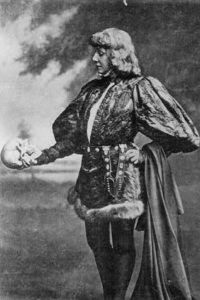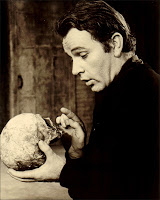Shakespeare Geek, in conjunction with Shakespeare in Bits, is pleased to announce our new contest where we’re giving away *10* copies of their new interactive Romeo and Juliet software (the new standard in multimedia Shakespeare) for PC or Mac!
We reviewed the product a few weeks ago. Highlights:
- The complete, unabridged, original text, with comprehensive study notes, analysis, plot summaries, and SIB’s unique in-line translation system.
- Almost three hours of top-quality audio, brought to you courtesy of Naxos Audiobooks, with Kate Beckinsale as Juliet, Michael Sheen as Romeo, and Fiona Shaw as the Nurse.
- Three hours of original, engaging animation, covering every word of the play.
Contest Rules
1) Become a fan of Shakespeare Geek on Facebook. (They’ve since changed to just calling this a “like” now.)
2) Become a fan of Shakespeare in Bits on Facebook.
3) On either wall (or both, if you like!) post something about Shakespeare. We’d like “What Shakespeare means to me” or “My best Shakespeare experience”, but quite frankly the content is up to you because of step #4 …
4) Share your story with your friends! Get your friends (and strangers, why not?) to “like” your post. So if you want to win, post something good 😉
5) At the end of the contest, we’ll choose the 10 top stories that have the most “likes” to each win a free copy of Romeo and Juliet from Shakespeare in Bits. Posts will be chosen from both walls, so if you post on both you’ll get two entries in the contest (though you can win only once).
6) In the event of a tie, remaining prizes will be given away by random drawing from all entries. So just posting something, even without campaigning to get it liked, gets you good odds of winning too.
7) Contest ends on midnight EST on April 22, so we can announce the winners on April 23 in honor of Shakespeare’s birthday.
8) Shakespeare Geek is based in the USA while Shakespeare in Bits is based in Ireland, so we are not restricting the contest to a particular geography. The prizes will take the form of registration keys to unlock the downloadable product, which is available for both PC and Mac. (iPad and iPhone/iTouch versions on the way.)
UPDATE April 23, 2010 : This contest has ended. Thanks for playing!
Any questions? Get posting! (Teachers, this software is perfect for a classroom setting so motivate your students to support your entry!)

 You know what just occurred to me? I don’t recall seeing a single peanut in any of Shakespeare’s works. Perhaps Shakespeare was suggesting that Hamlet was allergic? More importantly could he have found a rhyme for “epi pen” while still getting the meter to come out right?
You know what just occurred to me? I don’t recall seeing a single peanut in any of Shakespeare’s works. Perhaps Shakespeare was suggesting that Hamlet was allergic? More importantly could he have found a rhyme for “epi pen” while still getting the meter to come out right? Ok, here we go! The easiest way to review Hamlet, I’ve found, is to break it into three distinct reviews : the direction, the rest of the cast, and Hamlet himself. Otherwise it’s just too hard to separate what David Tennant did with what he was given to work with. Let me just first say that watching Shakespeare on “live” TV as if it were some sort of major event was just awesome. It was this wonderful combination of nostalgia (remember the days before DVR where if you got up to go to the bathroom you missed stuff?) with modern technology – I sat on Twitter and did play-by-play throughout most of the show. Could I have DVR’d it? Sure, and I did, kind of — I was running maybe 45 minutes behind everybody else. But it was important to me to watch it as live as I could, as if we were watching the Academy Awards or something. I wanted to share the experience with my geeks. Great time, and I look forward to what
Ok, here we go! The easiest way to review Hamlet, I’ve found, is to break it into three distinct reviews : the direction, the rest of the cast, and Hamlet himself. Otherwise it’s just too hard to separate what David Tennant did with what he was given to work with. Let me just first say that watching Shakespeare on “live” TV as if it were some sort of major event was just awesome. It was this wonderful combination of nostalgia (remember the days before DVR where if you got up to go to the bathroom you missed stuff?) with modern technology – I sat on Twitter and did play-by-play throughout most of the show. Could I have DVR’d it? Sure, and I did, kind of — I was running maybe 45 minutes behind everybody else. But it was important to me to watch it as live as I could, as if we were watching the Academy Awards or something. I wanted to share the experience with my geeks. Great time, and I look forward to what  I’m not talking about actors who memorize as part of their job, or geeks who memorize just by experiencing the same passages over and over again. I’m talking about the legions of school-age children who stop by, having been tasked with memorizing the balcony scene or a sonnet or even a passage of their choice, just for the sake of memorizing it.
I’m not talking about actors who memorize as part of their job, or geeks who memorize just by experiencing the same passages over and over again. I’m talking about the legions of school-age children who stop by, having been tasked with memorizing the balcony scene or a sonnet or even a passage of their choice, just for the sake of memorizing it.